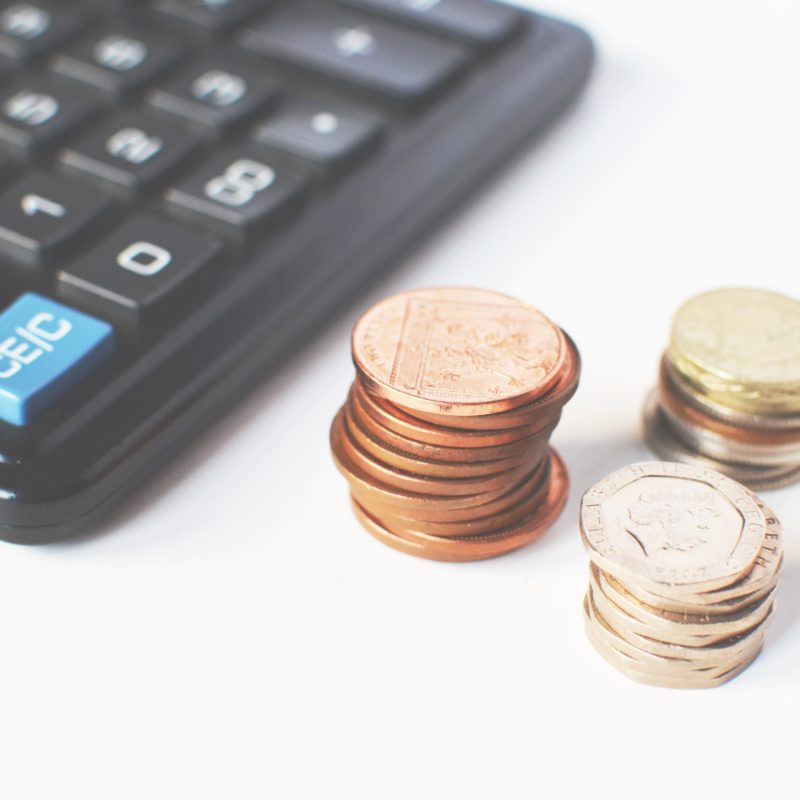Running a small business in the UK comes with its unique challenges and opportunities. One of the most significant opportunities lies in understanding and leveraging tax deductions. Tax deductions for small businesses can make a substantial difference in the financial health and growth of your business.
The concept of tax deductions may seem complex and daunting, especially for new small business owners. However, with the right understanding and guidance, it can become a powerful tool in your business strategy. By reducing your taxable income, tax deductions can help you save money, invest more in your business, and ultimately boost your business growth.
We’re experts in tax deductions for small businesses, at FiguresUK we take the stress out of tax deductions for business owners and ensure your business receives the tax deductions it is entitled to.
Understanding the Concept of Tax Deductions
First things first, what exactly are tax deductions? Simply put, tax deductions are expenses that you can subtract from your taxable income. These are costs incurred in the course of running your business. The more deductions you claim, the less income tax you have to pay.
Tax deductions are a critical aspect of the UK tax system, designed to support businesses and stimulate economic activity. They vary in nature and scope, ranging from operational expenses like office supplies to more substantial costs like machinery or property.
However, not all business expenses qualify for tax deductions. It’s crucial to understand which expenses are deductible and which aren’t. The UK tax authority, HM Revenue and Customs (HMRC), provides clear guidelines on what counts as a deductible expense.
The Role of Tax Deductions in UK Small Businesses
In the UK, tax deductions play a pivotal role in supporting small businesses. They lessen the tax burden on these businesses, allowing them to retain more of their income. This, in turn, can be used to reinvest in the business, improving its equipment, expanding its operations, or hiring more staff.
Tax deductions also help level the playing field between small businesses and larger corporations. While larger companies often have more resources and can leverage economies of scale, tax deductions for small businesses provide a much-needed boost to their finances.
Additionally tax deductions can help businesses navigate tough economic times. By lowering their tax liability, businesses can have more cash on hand to weather downturns or unforeseen challenges. In this way, tax deductions can also contribute to the overall stability and resilience of the UK economy.

The Benefits of Tax Deductions for Small Businesses
Now that we understand the role of tax deductions, let’s delve into their benefits. The first and most apparent benefit is financial. By reducing your taxable income, tax deductions directly translate to cost savings. These savings can be significant, especially for businesses with high operational costs.
Tax deductions also offer a strategic benefit. They incentivise businesses to invest in areas that can spur growth, such as research and development, employee training, or new equipment. For instance, if these expenses are tax-deductible, businesses are more likely to invest in them, thereby promoting innovation and productivity.
How Tax Deductions Boost UK Small Businesses
Tax deductions act as a catalyst for small businesses in the UK, driving their growth and competitiveness. By lowering tax liabilities, they free up resources that can be invested back into the business. This investment can take many forms, from hiring new employees to upgrading equipment or expanding into new markets.
Moreover, tax deductions can help small businesses attract investment. Investors are always looking for businesses with healthy finances and good growth potential. By effectively leveraging tax deductions, small businesses can improve their financial performance and become more appealing to investors.
Lastly, tax deductions can enhance the sustainability of small businesses. By easing the financial burden, they make businesses more resilient to economic shocks. This is particularly important for small businesses, which often operate on thin margins and may lack substantial financial reserves.
Different Types of Tax Deductions for Small Businesses
There are numerous types of tax deductions available to small businesses in the UK. Some of the most common ones include:
Business expenses: These are costs incurred in the day-to-day running of your business. They can include office rent, utilities, office supplies, and employee salaries.
Capital allowances: These are deductions you can claim for the cost of buying or improving business assets, such as machinery or property.
Research and development (R&D) tax credits: These are deductions aimed at incentivising innovation. You can claim them if your business is involved in research or developing new products, processes or services.
Home office expenses: If you work from home, you can claim a portion of your home costs as business expenses.

How to Claim Tax Deductions for Your Small Business
Claiming tax deductions for your small business involves several steps. Firstly, you need to keep accurate and detailed records of all business expenses. This includes receipts, invoices, and bank statements. These records are essential for proving the legitimacy of your deductions if HMRC ever decides to audit your business.
Next, you need to determine which expenses are deductible. As mentioned earlier, not all business expenses qualify for tax deductions. It’s advisable to consult with a tax professional or an accountant to ensure you’re claiming all eligible deductions and not claiming non-deductible expenses.
Finally, you need to calculate your deductions and report them on your tax return. Again, it’s advisable to seek professional help with this, especially if you’re new to business taxes. An accountant or tax advisor can help you navigate the complexities of the tax system and ensure you’re claiming your deductions correctly.
Taxes are a legal obligation that you need to get right, 100% accuracy is required. At FiguresUK we speak to a lot of business owners who attempt their taxes and other business admin themselves, and then have a crisis of confidence about whether they got it right. Instead of becoming an accountant as well as a business owner within your industry, let FiguresUK take the stress out of it for you.
Common Mistakes to Avoid When Claiming Tax Deductions
While tax deductions can be highly beneficial, they can also be a source of mistakes and misunderstandings. Here are some common pitfalls to avoid when claiming tax deductions:
Not keeping proper records: As mentioned previously, you need to keep detailed records of all business expenses. Failing to do so can lead to problems if you’re audited by HMRC.
Claiming non-deductible expenses: Not all business expenses are tax-deductible. Claiming non-deductible expenses can result in penalties and interest charges.
Overlooking potential deductions: Many small business owners are unaware of all the deductions they’re eligible for. It’s worth seeking professional advice to ensure you’re not missing out on any potential savings.
Not filing on time: Late filing can result in penalties and interest charges. Make sure you know when your tax return is due and file it on time.
In conclusion, tax deductions are a powerful tool for UK small businesses. They can significantly reduce your tax liability, freeing up resources for investment and growth. They can also make your business more attractive to investors and enhance its resilience in tough economic times.
However, to reap these benefits, it’s crucial to understand the concept of tax deductions, know which expenses are deductible, and claim them correctly. It’s also important to avoid common mistakes, such as not keeping proper records or claiming non-deductible expenses.
By leveraging tax deductions effectively, UK small businesses can not only boost their finances but also contribute to the overall growth and competitiveness of the UK economy.
So, if you’re a small business owner, make sure you’re making the most of tax deductions.
When it comes to filing your taxes and accounts, it’s far better to be in the hands of a professional, than to risk making potentially costly mistakes. If you’re unsure about anything, don’t hesitate to reach out to us, here at FiguresUK tax deductions are second nature to us, we can manage all your business expenses and admin in one place.
 Jason Cannon
Jason Cannon
Managing Director and Figures UK Founder
No matter the size of your business, whether you’re a sole trader or a Limited company, when it comes to accounting, it can be a little confusing to say the least.
That’s where we come in. We’re on hand to listen, advise and provide our expert support.
You can find lots more useful information in our blogs below or get in contact with us.




